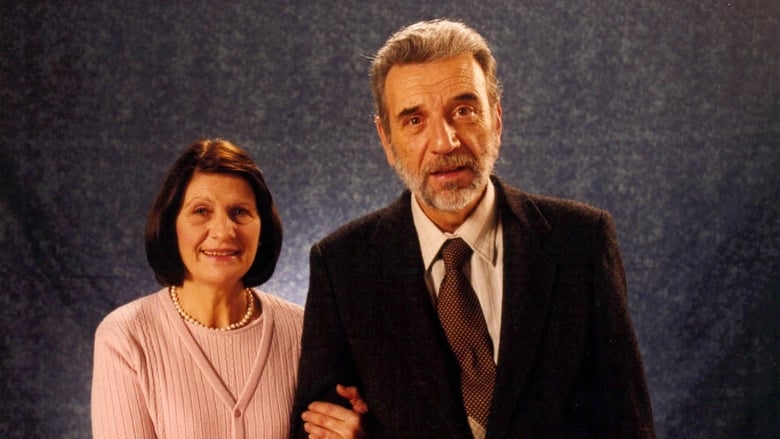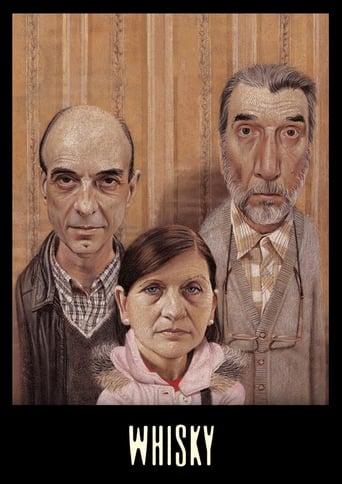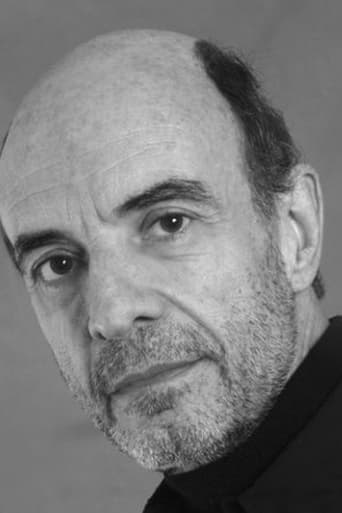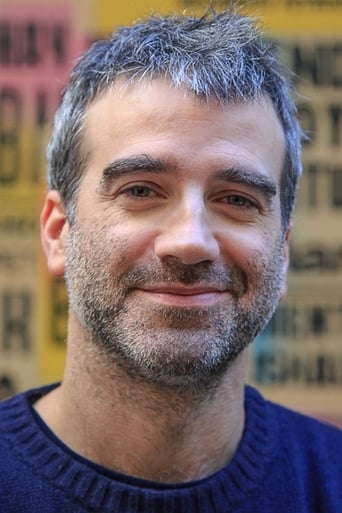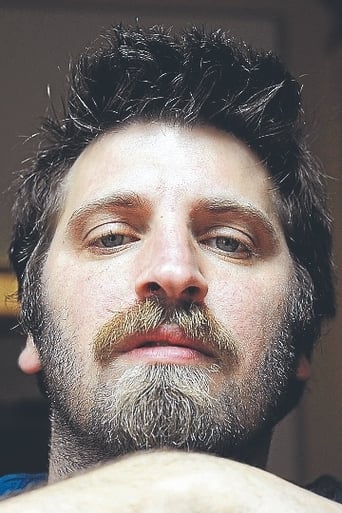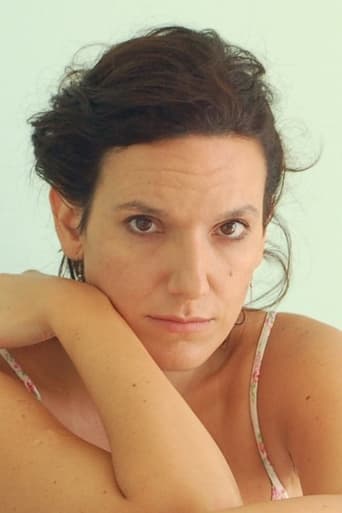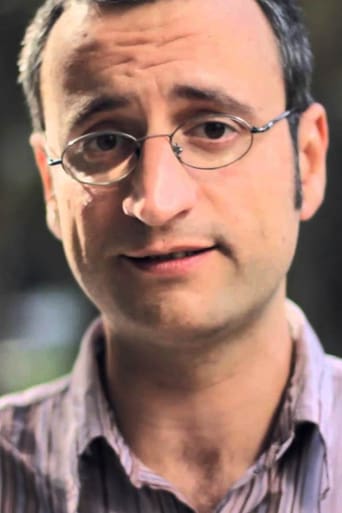When his long-lost brother resurfaces, Jacobo, desperate to prove his life has added up to something, looks to scrounge up a wife. He turns to Marta, an employee at his sock factory, with whom he has a prickly relationship.
Reviews
Nice effects though.
Good movie but grossly overrated
The film never slows down or bores, plunging from one harrowing sequence to the next.
Great story, amazing characters, superb action, enthralling cinematography. Yes, this is something I am glad I spent money on.
As in their first film, 25 WATTS, Rebella and Stoll draw influence from Jarmusch. But in this case, it's the good parts of Jarmusch... the parts that are more like Kaurismaki. There's a lot of wonderful deadpan humor in this film, like the brothers exchanging socks from their own factories when they greet each other, and nearly identical gift shop T-shirts when they say goodbye. Jacobo is both a comic and a tragic figure, someone you want to love but he just doesn't get it. Marta is the real heart and soul of the film, with a really endearing performance from Mirella Pascual. Although the ending may appear ambiguous, I think it's pretty clear that she's undergone a personal triumph. It's a warm, funny and consistently engaging movie. Definitely one for any Kaurismaki fans to check out. I wasn't very taken with 25 Watts, but now I'm sad that we'll never know what other work this collaboration might have produced.
I enjoyed Whisky, the joint Argentinean, Uruguayan, Spanish, German production from now deceased director Juan Pablo Rebella and his co-maker Pablo Stoll. Rebella committed suicide two years after this film was released in Britain, something that after seeing Whisky comes as a great shame as he will not be gracing the film-making circles in the future. The film is about everyday people in everyday locations, the fact it takes place in South America is irrelevant because the film is about the want to escape the everyday; the mundane even if it is just for a brief time. The people that inhabit the film are grim and expressionless people; unfulfilled and worthless felt people who could go through their daily routine in their sleep. The people are elderly but single; friendly and understanding but in their own downbeat manner the film is slow and deliberate but brilliant all the same.The fact co-director Rebella took his own life two years after this film adds an odd layer on top of an already interesting study. Rebella co-wrote the piece and to me has quite clearly put down some of his own thoughts, feelings; even emotions into this project. Rebella does not want to say anything too grander during the opening twenty to thirty minutes but just wants to, through editing, get across a feeling of frustration in life; a frustration of repetition as Jacobo (Pazos) opens up his factory each morning and we see the employees enter thus starting the same procession each day.But Jacobo learns of a visit from his more successful brother Herman (Bolani), someone he shares an uneasy friendship with due to a prior event in their lives revolving around a family tragedy; usually an efficient back-story idea for this sort of downbeat, dramatic genre. Thrown in amongst the mix is a supervisor of the younger factory employees of sorts; Marta (Pascual) who will eventually play Jacobo's mock wife but seems to have more in common with Herman than she'd first think.The film is about relationships; friendships but relationships of all sorts. Men and women pretending to be married; brothers that share uneasy truces; friendships that strike up between a male and a female of which one thinks the other is already taken. These are confused and tantalisingly so relationships but relationships none-the-less. Prior to this running idea is a series of shots and scenes dedicated to real life objects that don't work or do work but only after a lot of attention. These include a car the very first shot of the film which takes a while to fire up and get going. There are other visual references within the factory of objects working in odd fashions; the banging on the top of the light and the frequent mentioning of a blind that does not work all seem meaningless on the surface but are clues and precursors to the unorthodox relationships and the manner in which these odd people operate that follow.One thing leads to another and the real study gets going when the three people arrive at a holiday resort. The resort is an interesting 'space' in which the hotel rooms; the swimming pools and the casinos will act as places these three people will try to enjoy themselves but figure each other out anyway. Outside of the resort are beaches and restaurants that will act for some of the more sedate scenes in which characters, namely Herman and Marta, will get to know each other more. What's interesting during these exchanges is actor Andrés Pazos' face and how he plays the character as someone who doesn't really know how to behave given the flirtatious elements the conversations his supposed wife is having with his brother.But the character of Jacobo is interesting all the same; a downbeat and perhaps the more personified character Rebella wrote in relation to himself at the time. We get glimpses of the real him; a calm and sedate exterior is partially substituted during a scene at a football match when he just unloads at a linesman for something he may have done further in the past this is much to his brother's surprise and it may catch the audience out by coming across as quite humorous material when really it's a subtle hint at why prior relations may have failed for him. But the film is deceptive in this retrospect; the idea that one man and a female he knows become pretend husband and wife to fool a brother sounds like something out of an old, Hollywood screwball comedy. The film isn't played for laughs as much as it played to be understood as to why someone would go through with it; maybe we all get to the point in our lives where we don't care as much anymore and the sense of adventure or risk is better than a repetitive; zero emotion lifestyle.If the film works, it's because it's a look into a world some of us might be familiar with. Yes, it's South America but it could be anywhere location isn't the point as much as it is with other South American films such as City of God. It's about a breakaway from a life one has become embedded with or chained to. In this case, watching someone snap off the chain as others interact around them is fascinating and somewhat humbling. Even if Rebella died early under tragic circumstances, he went out on a high filmic note.
Yes zeidinho, you're right, it is an extremely slow movie and no, you're wrong, because it is a beauty as well. Every time you expect something to happen (which is not so often) it does not. And when you do not it does, but so casually and so not emphasized that you could very well miss it. In this respect the film is very surprising because, in contrast with its contents, the film itself does not follow the familiar patterns of storytelling. The acting is very small and very effective. The repetitive patterns (does your life change dramatically, every day?) are as painful as they are familiar. The language of images is very smart, no need to explain much. I laughed sometimes, I moaned more often and I liked it very much.
I have begun to make some critics does very just a short time, but the sufficient one to give account to me of the fundamental thing. The good critic must consider the spectator. it is fundamental that the Wiskhy film is not observed by lovers of the cinema of Hollywod, lovers of the speed, the special effects, films of action, do not have to see those it that love the films that are pure fiction, that of the reality does not show anything. He is almost impresindible that to this film does not see those people it who are not cultured, that does not know that in addition of the reality of Capitalism and the consumption exists other realities. Please all those do not see it, to the others I invite them to enjoy a great film, very subtle, very delicate. One movie that shows the life of 3 Uruguayan so as is. A true banquet of daily life
Top Streaming Movies











